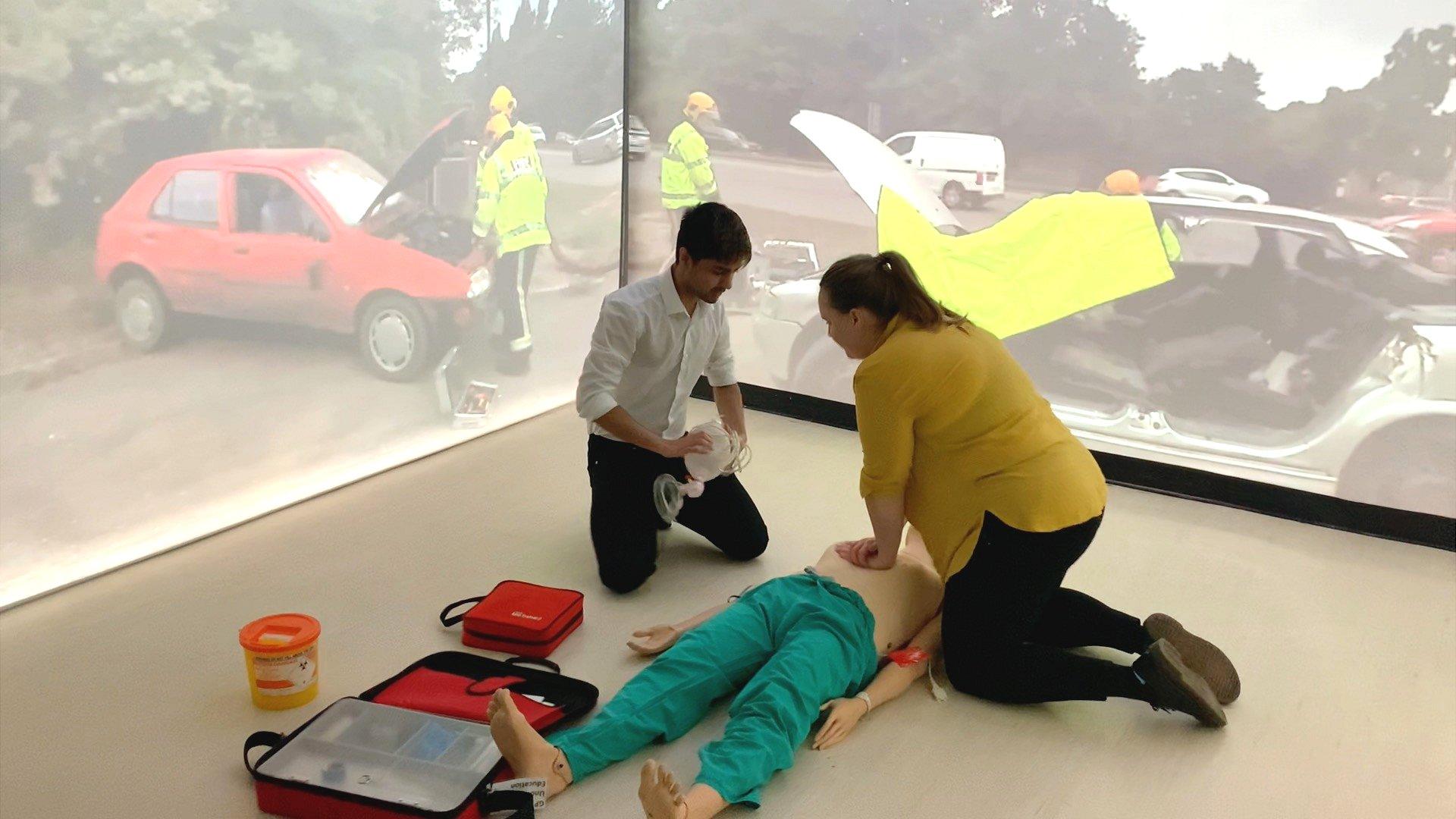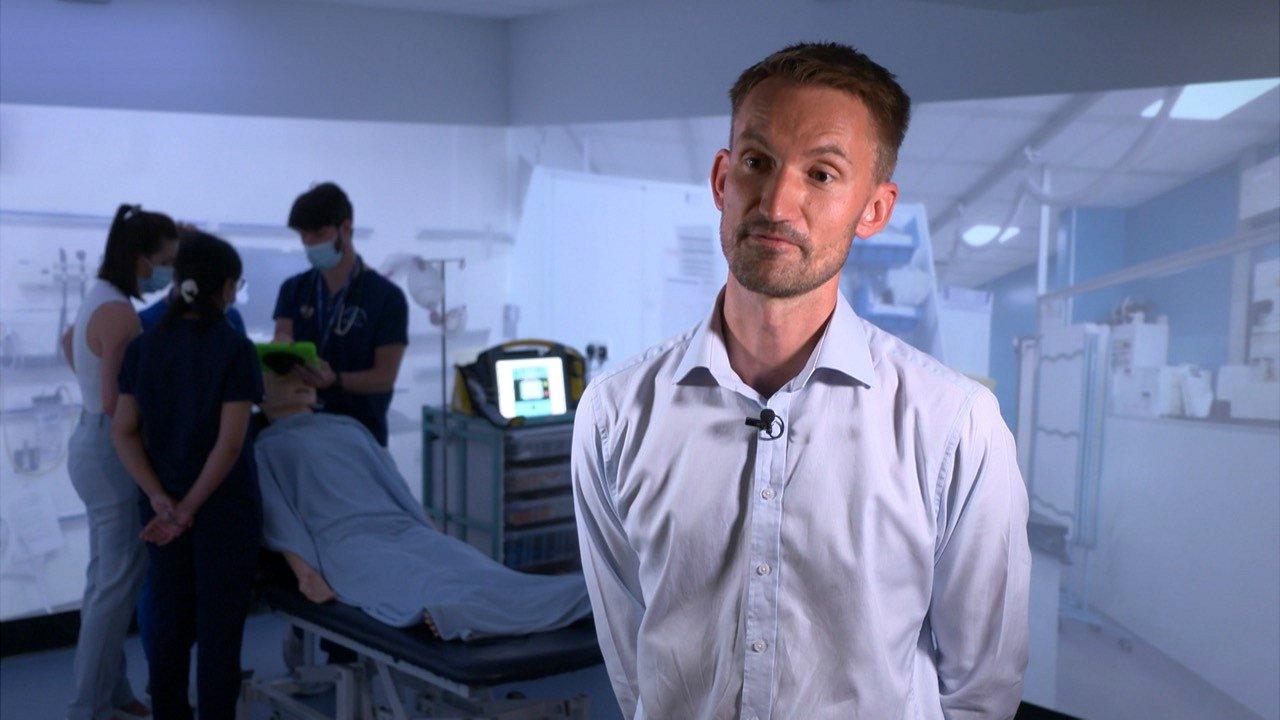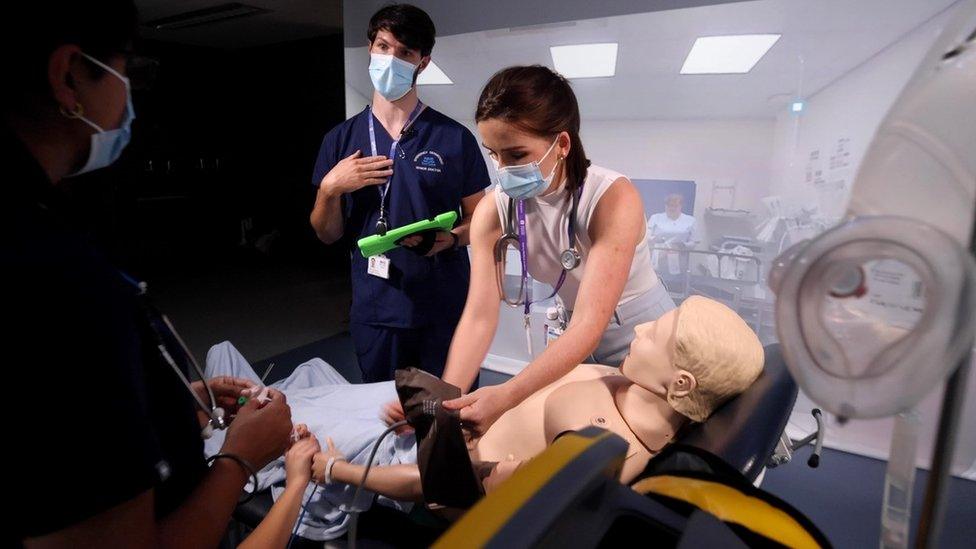It's a medical emergency simulation - but the adrenaline is real
- Published
The simulation allows students to practice for real life medical emergencies.
The emergency room at Ninewells Hospital crackles with activity as student medics tend to a patient rushed in with chest pains.
Lights flash, machines beep, and the buzz of a busy hospital echoes around the team as they diagnose, reassure, and administer life-saving care.
But none of it is real.
This is an immersion room, the first in Scotland to be used for medical training.
While it's a simulation, the future medics' feelings as they treat the plastic patient are visceral.
"The adrenaline you feel from the scenario is very real, I feel like I go through the emotions of it," says student Steph Westland.
"You have got the background noises, you have the machine showing you the readings.
"Even though you are treating a dummy, you very soon forget that."

The immersion room can simulate a number of real-world emergency scenarios
The 4m x 4m (13.1ft x 13.1ft) enclosed space allows 360-degree video footage to be projected on the walls, simulating a wide variety of environments, from road traffic accident scenes to terrorist incidents.
The idea is to train the fourth-year Dundee University students to respond and communicate while under pressure, with high levels of noise and visual distractions.
Dr Neil Harrison, from the Dundee Institute for Healthcare Simulation, says there is more pressure to provide training for medical students as a direct result of the pandemic.
He said: "Clinical placements are squeezed and we struggle to give our students sufficient time on wards to get all of the training that they might expect.
"We are fortunate that we are managing to do this, but ways of enhancing that training like using the immersion room are key for them to get the most out of their time."

Dr Neil Harrison says there is more pressure to provide training for students as a result of the pandemic
It's not only hospital scenes that can be projected on to the walls.
The students can be placed virtually at the scene of a car crash or even on to a battlefield.
The Dundee University team say the flexibility of the immersion room means they can continue to add more scenarios to train their students.
This could even include footage filmed around Ninewells Hospital, the real wards where these students may eventually be working.
Student Dana Alkhatib said: "We are meant to get clinical exposure as part of our curriculum from day one but that isn't something my year group has been able to get because of Covid.
"I think we have a very big gap to fill but training like this will help us catch up."

The immersion room allows video footage to be projected onto the walls
Emergency medicine registrar Dr Neil Colquhoun is running the session.
He says the immersion room gives the students freedom they simply could not have on real wards.
"When we have students in our emergency department, its always a conscious decision of how much do we expose them to these things versus how much we value the safety of the patient.
"But in the immersion room, it's always safe.
"Mistakes are allowed to be made, and in fact encouraged to be made, because that's how they learn."